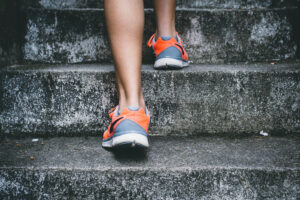Movement of some kind can be important to overall health for most people. When you are in recovery from addiction, you could find movement to be a useful coping skill. You could also find movement in recovery as an avenue in your life where you can put your focus on feeling better in your body. Balance is key when incorporating movement into your life. Movement in recovery can be helpful in many different ways, but it is important to also be aware of your limits and allow yourself to rest.
Why Movement in Recovery Can Be Beneficial
Addiction treatment at Avalon Malibu includes a wide range of therapies and other methods to help you heal. Movement in the form of physical fitness is one of those methods we utilize in your treatment plan. However, movement in other forms can also be utilized. It is important to know that movement does not always have to be rigid with set rules or an end goal. Because of this, movement does not necessarily mean exercise. Whereas with exercise, there is typically a focus on numbers – i.e., weight loss or gain, calories, or specific goals for how many reps you can complete – the word movement offers more variables to be taken into account.
Movement can be one way you allow yourself to enjoy moving your body in ways that feel good. For some, this may mean lifting weights, and for others, it could mean learning how to dance. Movement can benefit more than just your physicality; it can improve your mental health as well. According to the U.S. Department of Health and Human Services (HHS), “Mental health and physical health are closely connected.”
This quote is straightforward, and some examples relating to this statement could include the following mental health benefits from regular movement:
- Reduced stress
- Increased energy
- Decreased depression
- Improvement in overall mood
Movement as a Coping Skill
Listening to your body can be key when incorporating movement in your recovery. When you are in tune with your body and how you feel emotionally, you can learn to utilize movement as a coping skill. Moving your body in ways you enjoy can help lower stress. Movement releases endorphins into your body. If you are unfamiliar, endorphins are created in the brain and can help reduce physical pain and play a role in your mood.
Using movement as a coping skill could include having an additional safe place to let out anger or any other uncomfortable emotions you may experience. This does not necessarily mean you do not need to feel your emotions or process them, as that is incredibly important in addiction recovery. This simply could mean movement can allow you to let off some steam in a safe and healthy way.
There are many different ways you can incorporate movement in your recovery, which can, in turn, act as a coping skill. Learning new ways to move your body and finding the ones you enjoy can take time and effort. This can be a healthy area of your life where you use your energy. Some examples of movement you could try include:
- Walking
- Lifting weights
- Running
- Swimming
- Soccer
- Yoga
- Dancing
Movement in Recovery Is Not Always Black or White
When bringing up the topic of movement, it is essential to include information on “healthy” versus “unhealthy.” In today’s society, we hear a lot of conflicting information about what’s good for you and what’s bad, when really it’s not so black or white. As previously mentioned, movement can be a great coping skill, and knowing your limits can be vital. Movement is key to overall health for most people, and seeking out support from professionals can be helpful. If you aren’t sure where to start to incorporate movement into your recovery, the staff at Avalon Malibu can help.
When discussing movement, it is also important to discuss resting. Allowing yourself to rest when needed is vital when incorporating movement into your recovery. Some types of movement can be more tiring than others. For example, yoga may not be as intense as running miles on a treadmill. Remember, though, that everyone has different capabilities. With this in mind, it is important you are not hard on yourself if you find some movement more difficult than it is for someone else.
Movement can be a great tool you learn to utilize in addiction recovery; assuring you use movement in your recovery safely is crucial, and we believe we can help you. Keep in mind that every individual who seeks treatment with us will have an individualized treatment plan. Just as your treatment plan will be catered to your specific needs, the way you use movement in your recovery can be catered to your needs and interests as well.
There are a number of methods proven to help individuals in addiction recovery. One of these methods includes movement, which can be utilized in treatment and as well as everyday life after being discharged. Movement is not one-size-fits-all, meaning what works for you may not work for someone else. As long as you utilize movement in healthy ways and continue to implement other therapies in your recovery, movement can be a beneficial tool. Movement can help in your recovery journey from addiction in many ways, such as lowering stress levels and improving your mood. Call (844) 857-5992 for more information on how Avalon Malibu can utilize movement in your recovery journey today.












